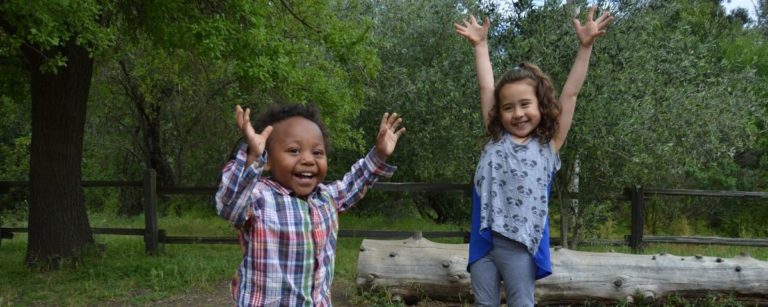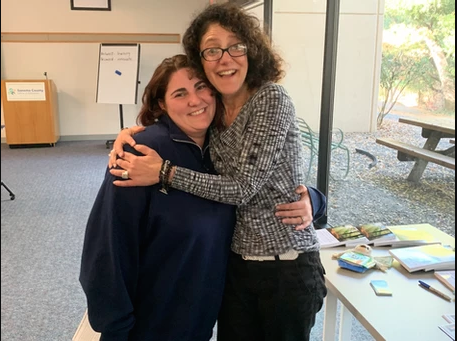Talking to Our Teens to Encourage Hope, Motivation and Change
By Wendy Witham, LMFT
Talking to Our Teens to Encourage Hope, Motivation and Change
Foster and adopted children can have belief systems that are negative, self-defeating and hopeless. Parents and caregivers can have conversations with their children in ways that explore and reduce ambivalence about change and increase motivation. We can instill hope that change in how they think of themselves and their lives is possible.
These techniques are taken from therapy models known as Solution Focused and Motivational Interviewing and are appropriate for older children, teens and young adults. These models involve making observations and asking questions that help children see “exceptions” to their negative beliefs or self-defeating behavior. They have negative “stories” about themselves that can be changed, and then they can see “when the problem wasn’t as much of a problem”. This can facilitate problem solving and instill hope. The child can evaluate what they might have done to effect the positive change, thus increasing their sense of self-efficacy.
Elements of a Solution Focused model include:
Change problem stories into solution stories
What stories/ideas do you have about yourself or your problems that hold you back or keep you doing the same thing over and over again?
Find or create some evidence that contradicts the unhelpful story.
Create compassion and helpful stories – find a kinder, gentler view of yourself, someone else, or your situation.
Break Problem Patterns
Change the “doing” of the problem – to solve a problem, change any part you can of your regularly repeated actions in the situation.
Find and Use Solution Patterns
Ask yourself: when did I NOT experience the problem after I expected I would? What was I doing differently that might have affected this?
Import some solution patterns from other situations in which you felt competent.
Start talking as if the future you want is both possible and likely. Envision a future in which your problem is resolved.
How Parents and Caregivers can use these techniques:
Making Observations
Parents and caregivers can make observations of positive changes they see in their teens, no matter how small…things like when your teens express some honest emotions, demonstrate some self-care, set a goal and work towards it, or express hope in their future.
With these observations, we can also ask, “How did you do that? How were you able to make that change? What helped? What do you think it is about you that you were able to do that?”
We can also make affirming statements to recognize our child’s strengths and express empathy for what it is like for our teens to struggle with these choices, circumstances and behaviors.
Asking questions
These questions can be asked during the course of everyday conversations with our teens or during specific problem-solving:
– Ask open-ended questions, not easily answered with yes, no or short answers. This invites elaboration and thinking more deeply about an issue and can cause forward momentum.
– Ask for the pros and cons of both changing and staying the same.
– When a teen expresses a desire to change, ask for more details…”In what ways? Tell me more? What does that look like? When was the last time that happened?”
There are many ways to ask a question to facilitate some possibility of change, and these can be adapted for your teen and the specifics of their situation. Some other examples of these questions are:
What would you like to see happen that is different about your current situation?
What would be the good things about changing ________.
How can I help you get past some of the difficulties you are experiencing?
If you were to decide to change, what would you have to do to make this happen?
If you make changes, how would your life be different from what it is now?
Tell me about a time when things went slightly better for you, and how this is different.
Tell me how you have been able to cope up to now with this situation. What has helped you move forward?
I am amazed that you have been able to_______ while this has been going on…(or)…Tell me the last time that you were able to ______ and not allow_______ to occur, even in other situations.
Sounds like you want this___, but what’s happening is getting in the way. What do you think you’ll do?
It seems you’ve been working hard at ______. That is different than before. Is there anything you are doing differently?
Asking open-ended questions like these is a cognitive exercise, and children, teens and young adults, especially those who have experienced trauma, are still developing the ability to observe themselves and evaluate their belief systems. However, patiently having these thoughtful conversations with them can facilitate their development by helping them see that they are capable of motivating change and can be hopeful for their continued growth.
Wendy Witham, LMFT, is a therapist in private practice for over 30 years who has worked with teens, adults and families around a variety of concerns. As a single adoptive parent with a grown daughter, Wendy is a longtime member of our Help One Child family network. She serves as a member of the Help One Child Education Committee and has been instrumental in leading parent trainings, writing blog articles, and helping launch and lead our original Parents of Teens+ Support Group.









